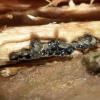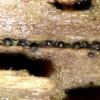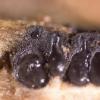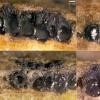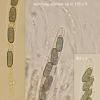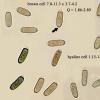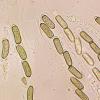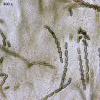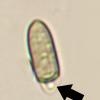
05-02-2026 06:43
Stefan BlaserHello everybody, Any help on this one would be mu

03-02-2026 20:44
Zetti MarioWhen I first saw this white mould on an Agaricus s

18-08-2025 15:07
 Lothar Krieglsteiner
Lothar Krieglsteiner
.. 20.7.25, in subarctic habital. The liverwort i

02-02-2026 21:46
Margot en Geert VullingsOn a barkless poplar branch, we found hairy discs

02-02-2026 14:55
 Andgelo Mombert
Andgelo Mombert
Bonjour,Sur thalle de Lobaria pulmonaria.Conidiome

02-02-2026 14:33
 Andgelo Mombert
Andgelo Mombert
Bonjour,Sur le thalle de Peltigera praetextata, ne

31-01-2026 10:22
 Michel Hairaud
Michel Hairaud
Bonjour, Cette hypocreale parasite en nombre les

02-02-2026 09:29
 Bernard CLESSE
Bernard CLESSE
Bonjour à toutes et tous,Pour cette récolte de 2

01-02-2026 19:29
 Nicolas Suberbielle
Nicolas Suberbielle
Bonjour, Marie-Rose D'Angelo (Société Mycologiq
Hi to all
My friend F.J. Balda sent me this fungus growing on very wet, semirotten, wood of Pinus sylvestris that makes groups of inmersed and blackish perithecia 0.5-0.6 mm high inside + or - developped blackish stromata. Only the blackish and roundish papilla erumpent.
Asci long-stipitate up to 155 x 9 micr., with a refractive, small, IKI negative apical apparatus. The greenish-brown mature ascospores have a non-septate dark cell with an apical pore and an small hyaline cell under the wich we can to observe a very small hyaline papilla (?).
If this fungus belongs to Endoxyla only E. xanthostroma is close, but the lack of yellowish tissues and the hyaline papilla of the ascospores don't fit with this species.
Any idea?
Thanks again
Hi Enrique,
E. xanthostroma is a good option, you said it. On the fourth photo, we can see yellow tissues, do you agree ?
The other features fit almost well with E. xanthostroma.
Alain

in fact she does mention the "cellula hyalina" (p. 305 and figs. 21-22).
Regards
Martin
Hi Martin
The hyaline cell was described, and it was drawn by Untereiner, but not the small hyaline appendage under this cell!

